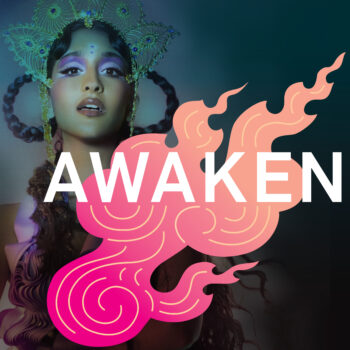
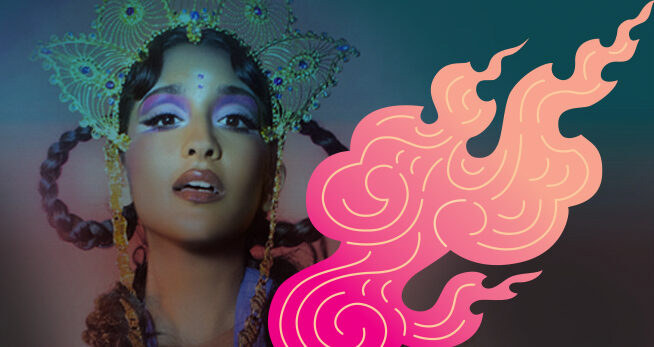
Tracy Dennis:
Anxiety, sadness, anger, they’re a feature of being human. I think these conversations about difficult emotions are the single most important kind of conversation we can have right now to improve our lives.
Mark Epstein:
All emotional life is worth paying attention to, and if we can learn how to pay attention to it mindfully, it will liberate itself, and therefore enlighten us.
Raveena Aurora:
Welcome to season 2 of Awaken, a podcast from The Rubin Museum of Art that uses art to explore the dynamic paths to enlightenment and what it means to “wake up.” I’m singer and songwriter Raveena Aurora and I’ll be on this journey with you.
The Rubin is a museum of Himalayan Art, much of which was created specifically to offer pathways towards awakening.
In this second season of AWAKEN, we’ll explore the transformative power of emotions with the help of a Tibetan Buddhist mandala.
Ruth Ozeki:
The mandala really it’s a kind of distillation of”¦. of that notion of interbeing, interconnectivity.
Raveena Aurora:
With the guidance of scientists, Buddhist teachers, writers, artists, and activists, we’ll wrestle with five challenging emotions””anger, pride, attachment, envy, and ignorance to help us expand our perspective and explore what these emotions might teach us if we get curious.
Madame Gandhi:
I felt this beautiful mix of jealousy and inspiration.
Ruth Ozeki:
You’re holding the feeling, and turning it, and examining it, and transforming it
Mark Epstein:
Learn to hold anger like a baby. You hold it lightly. You hold it lightly.
Raveena Aurora:
When we better understand our emotions, we can then better understand how to make change in ourselves, our communities, and the world around us.
adrienne maree brown:
And I think once we recognize we all have those contradictions then we can begin to get curious with each other”“ well then, what is our way forward together?
Ponlop Rinpoche:
It can lead us to a sense of into the interconnected nature of the world, through which of course you can’t help but to have a genuine sense of love and compassion towards each other.
Raveena Aurora:
Tune in to season 2 wherever you listen to podcasts or at RubinMuseum.org.
Wake up to what is possible.
Welcome to Season 2 of AWAKEN—a Webby Honoree podcast about the dynamic path to enlightenment and what it means to “wake up.” In this new season hosted by singer and songwriter Raveena Aurora, Buddhist teachers, writers, artists, activists, and others use a Tibetan Buddhist mandala as a guide and share how they wrestle and learn from five challenging emotions: anger, pride, attachment, envy, and ignorance.
Episode guests in order of appearance: Tracy Dennis-Tiwary, Mark Epstein, Raveena Aurora, Ruth Ozeki, Madame Gandhi, adrienne maree brown, and Dzogchen Ponlop Rinpoche.
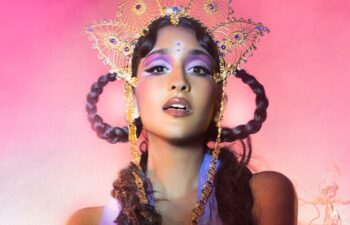
For Raveena, music is meant to be a “complete expression of the self.” It’s a truth she’s leaned on through a whirlwind couple of years, which saw a potent flurry of output and a pointed ascent into the conversation with her critically acclaimed 2019 debut full-length, Lucid, and 2020 follow-up, Moonstone EP. Asha’s Awakening takes listeners on an epic deep dive into Indian culture. An homage to her heritage as a first-generation descendant of genocide survivors and Reiki healers, the album incorporates influences from Bollywood and celebrated Indian artists like R.D. Burman and Asha Bhosle, as well as Western music—specifically R&B, rock, and soul—and melds the genres prevalent throughout Raveena’s catalog into one cohesive body of work. The album also marries eras in time, fusing together a contemporary take on sounds influenced by Alice Coltrane and Asha Puthli from the 60s and 70s with those of Timbaland, Missy Elliott, M.I.A., and Jai Paul from the early 2000s. It is a labor of love that represents her evolution as an artist. Raveena remarks, “I think it’s really fun putting people in uncomfortable positions to receive new sides of you. The human experience is so vast.”
Inspired by artists like Sade, Corinne Bailey Rae, Minnie Riperton, and Indian singer Asha Puthli, Raveena is a highly creative, dynamic, and spiritual artist who aims to build fully realized worlds within each of her projects: conceptual experimentations in sound, threaded together by stories of healing and self-realization meant to be experienced from start to finish.

Tracy A. Dennis-Tiwary, PhD, is a professor of psychology and neuroscience at The City University of New York. As director of the Emotion Regulation Lab, she conducts NIH-funded research on anxiety, suicide, and digital therapeutics for stress and anxiety. She is the cofounder of Arcade Therapeutics, which translates cutting-edge science into digital tools for behavioral health, and co-executive director of the Center for Health Technology at Hunter College. She is the author of Future Tense: Making Anxiety Our Superpower.
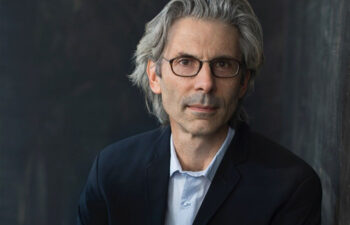
A highly-regarded psychiatrist in private practice in New York City, Mark Epstein, MD, is the author of a number of books about the interface of Buddhism and psychotherapy, including Thoughts without a Thinker, Going to Pieces without Falling Apart, Going on Being, Open to Desire and Psychotherapy without the Self. The Trauma of Everyday Life uses the Buddha’s biography as a means of exploring the hidden psychodynamics, and contemporary relevance, of Buddhist thought. He received his undergraduate and medical degrees from Harvard University and is currently a clinical assistant professor in the postdoctoral program in psychotherapy and psychoanalysis at New York University.
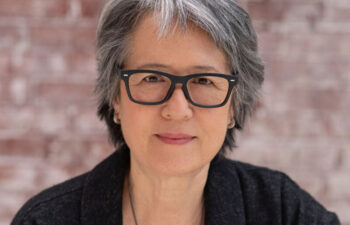
Ruth Ozeki is a novelist, filmmaker, and Zen Buddhist priest, whose books have garnered international acclaim for their ability to integrate issues of science, technology, religion, environmental politics, and global pop culture into unique, hybrid, narrative forms. Her new novel, The Book of Form and Emptiness, published by Viking in September 2021, tells the story of a young boy who, after the death of his father, starts to hear voices and finds solace in the companionship of his very own book. The Book of Form and Emptiness has been shortlisted for the UK Women’s Prize for Fiction. Her first two novels, My Year of Meats (1998) and All Over Creation(2003), have been translated into 11 languages and published in 14 countries. Her third novel, A Tale for the Time Being (2013), won the L.A. Times Book Prize, was shortlisted for the Man Booker Prize and the National Book Critics Circle Award, and has been published in over 30 countries. Her work of personal non-fiction, The Face: A Time Code (2016), was published by Restless Books as part of their groundbreaking series called The Face. Ruth’s documentary and dramatic independent films, including Halving the Bones, have been shown on PBS, at the Sundance Film Festival, and at colleges and universities across the country. A longtime Buddhist practitioner, Ruth was ordained in 2010 and is affiliated with the Brooklyn Zen Center and the Everyday Zen Foundation. She splits her time between Western Massachusetts, New York City, and British Columbia, Canada. She currently teaches creative writing at Smith College, where she is the Grace Jarcho Ross 1933 Professor of Humanities in the Department of English Language and Literature.

Madame Gandhi is an award-winning artist and activist known for her uplifting, percussive electronic music and positive message about gender liberation and personal power. She began producing music in 2015, after her story running the London Marathon free-bleeding to combat menstrual stigma went viral around the world. She has been listed as Forbes 30 Under 30 in Music, and her 2020 TED Talk about conscious music consumption has been viewed over a million times. Waiting For Me, shot in Mumbai, India, won the Music Video Jury Award at SXSW Film Festival in 2021, and her 100% Organically Sourced x Sound MANA nature sound pack won the New.Wav award at the 2021 Splice Awards. Her third studio album, Vibrations, is slated for release in 2022, following the release of her previous albums Voices (2016) and Visions (2019). Gandhi completed a Masters in Music Science & Technology at Stanford University’s CCRMA where she spent time in Antarctica sampling the sounds of glaciers melting to create empathy and awareness around climate change.

Adrienne maree brown grows healing ideas in public through her multi-genre writing, music, and podcasts. Informed by twenty-five years of movement facilitation, somatics, Octavia E. Butler scholarship, and her work as a doula, adrienne has nurtured Emergent Strategy, Pleasure Activism, Radical Imagination, and Transformative Justice as ideas and practices for transformation. She is the author/editor of seven published texts and the founder of the Emergent Strategy Ideation Institute, where she is now the writer-in-residence.
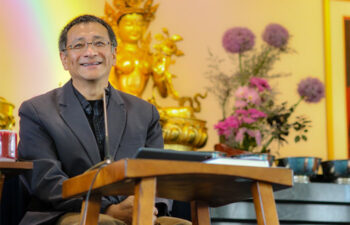
Dzogchen Ponlop Rinpoche is a widely celebrated Buddhist teacher and the author of Emotional Rescue, Rebel Buddha, and other books. A lover of music, art and urban culture, Rinpoche is a poet, photographer, accomplished calligrapher and visual artist, as well as a prolific author. Rinpoche is the founder, president, and spiritual director of Nalandabodhi, an international community of Buddhist centers. Rinpoche is acknowledged as one of the foremost scholars and meditation masters of his generation in the Nyingma and Kagyu schools of Tibetan Buddhism. He is known for his sharp intellect, humor, and easygoing teaching style, for launching the kindness initiative #GoKind and for his outreach to communities internationally.

Alexandra Horowitz is the author of Being a Dog: Following the Dog into a World of Smell and Inside of a Dog: What Dogs See, Smell, and Know. She teaches at Barnard College, where she runs the Dog Cognition Lab. She lives with her family and two large dogs in New York City.
Get the latest news and stories from the Rubin, plus occasional information on how to support our work.